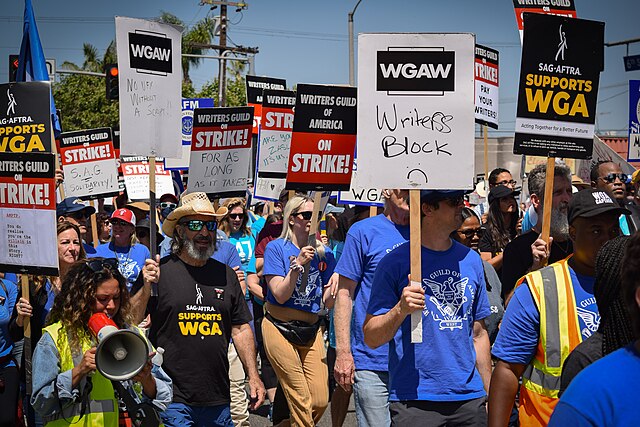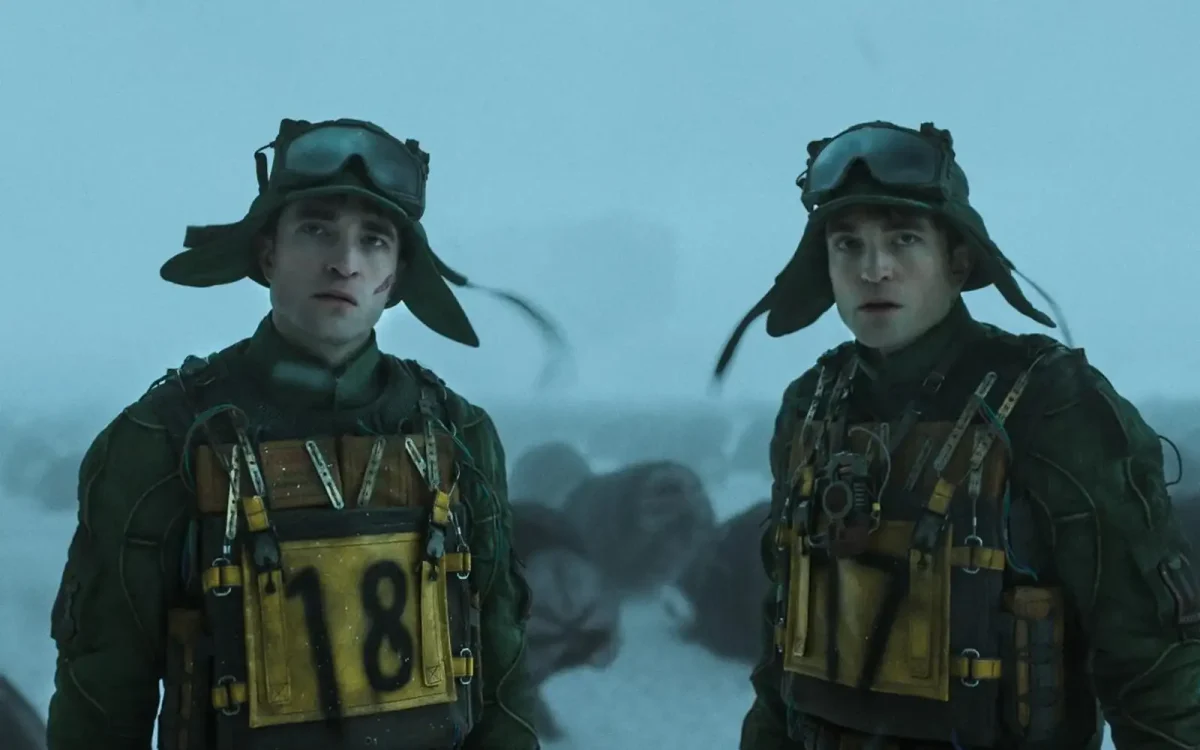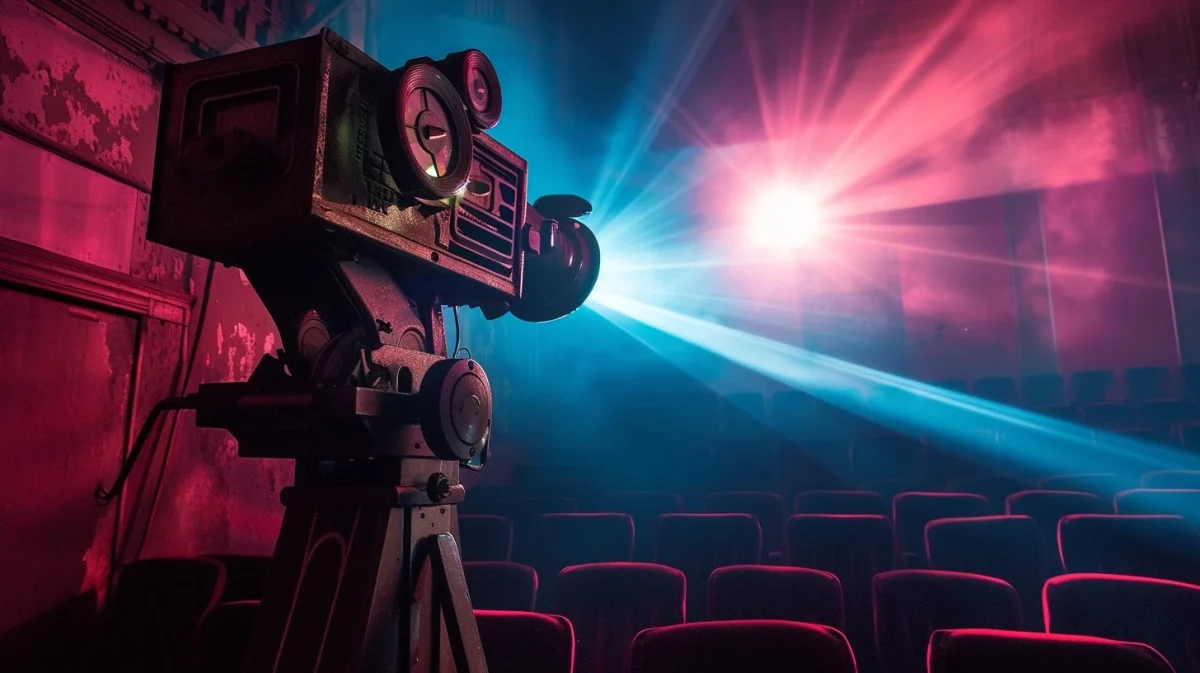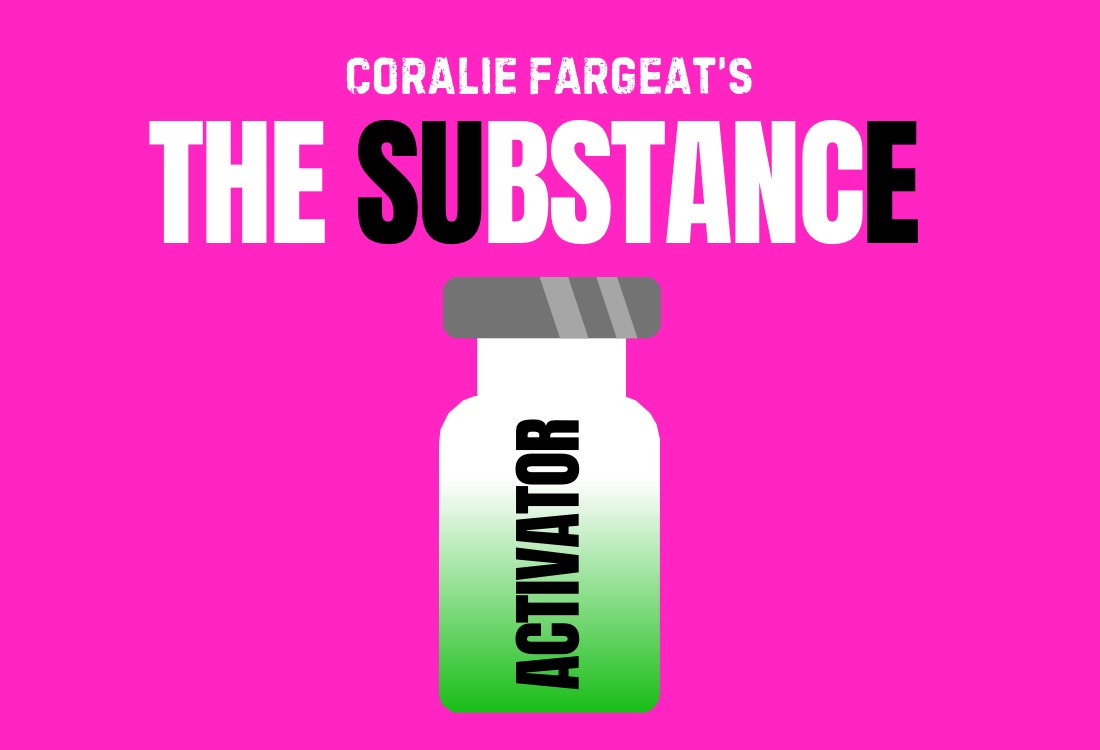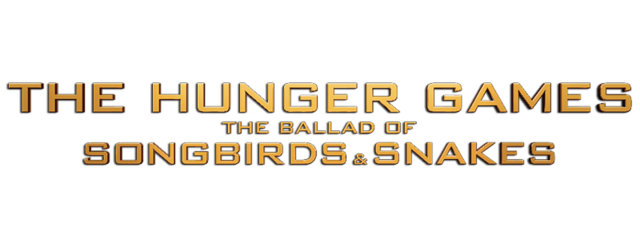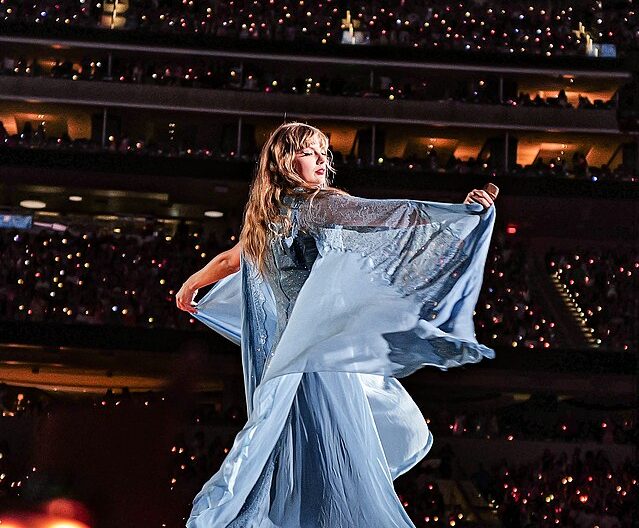After 148 days on the picket line, the Writer’s Guild of America (WGA) has reached a labor agreement with the Alliance of Motion Picture and Television Producers (AMPTP). The WGA posted a statement shortly after talks on Sept. 24, calling the deal “exceptional.” But production in Hollywood is still at a halt, with the actor’s union, SAG-AFTRA, continuing to strike after negotiations with the AMPTP fell apart on Oct. 12.
Some of the terms of the WGA’s 2023 contract with the AMPTP has led to increases in minimum wages and residuals (royalties paid for creative involvement), more transparency from streaming platforms, and set a requirement for at least three writers in a writing room, and most importantly, set the precedent for protections against AI.
One of the major concerns of the WGA strikes was the lack of wage compensation for writers. The new contract addressed those issues by creating a new streaming bonus based on the amount of viewership a show received that raised minimums by 5%. With these new bonuses, streaming services are also required to share viewership data with the WGA. This level of transparency for WGA members means that streaming services cannot falsify low viewership numbers as a reason to cancel their shows.
Development rooms, another prominent concern of writers, now require a minimum of three writers. Previously, mini-rooms were the norm, where entry-level writers were required to draft a plot for the entire series in a few weeks before being dissolved. Writers on the development team must be guaranteed a duration of 20 weeks or through the post-greenlight room.
Of the most notable gains from the contract are the written protections against AI, that set a blueprint for labor unions on AI regulations for SAG-AFTRA and in other industries. Since the widespread use of programs like ChatGPT, Hollywood writers feared AI replacement.
As a result, the 2023 WGA contract explicitly states that, “AI can’t write or rewrite literary material, and AI-generated material will not be considered source material under the MBA, meaning that AI-generated material can’t be used to undermine a writer’s credit or separated rights.”
The WGA creates a textual affirmation of the rights of writers over their work that safeguards against AI in their industry. The creation of new material thus can only be made by writers, must be credited to them, and bans the use of AI to replace writers.
Despite the new AI regulations, there are still shortcomings within the contract. The WGA’s previous hardline stance against AI usage in any capacity was modified to allow writers to use AI programs in their work. But this ignores the way AI programs like ChatGPT have used writers’ works as data without their prior consent, such as Game of Thrones author George R. R. Martin.
Meanwhile, although talks between SAG-AFTRA and the AMPTP have begun once again on Oct. 24, a deal has not yet been finalized. Talks initially fell apart on Oct. 12 due to large disagreements over the contract. Their respective organization websites have made conflicting statements over the offers made in negotiations, especially with reference to shares of revenue and AI protections.
The AMPTP claimed, “SAG-AFTRA’s current offer included what it characterized as a viewership bonus that… would cost more than $800 million per year—which would create an untenable economic burden.”
In response, SAG-AFTRA claimed that the AMPTP “intentionally misrepresented to the press the cost of the [viewership bonus] proposal—overstating it by 60%.”
Additionally, according to SAG-AFTRA, their offer for revenue sharing would have cost Hollywood companies “less than 57¢ per subscriber each year.”
On the concern of AI protections, the AMPTP’s offer prohibited the use of AI replicas without the performer’s written consent, and restricted how the replicas may be used. SAG-AFTRA countered, claiming that the AMPTP “demand[s] ‘consent’ on the first day of employment for use of a performer’s digital replica for an entire cinematic universe (or ant franchise project).”
Such disparities between the two sides over a bargain will continue to devastate California’s economy, especially as Hollywood production cannot resume without actors. The WGA and SAG-AFTRA strike has already cost a hefty $5 billion and cost thousands of workers their jobs. Surmounting pressure is placed on Hollywood executives and producers to come to a deal, while the SAG-AFTRA persists to more than 100 days of striking. Although historic gains have been made with the WGA deal, such victories are yet to be seen with SAG-AFTRA.
Editor’s Note: On November 10th, the SAG-AFTRA reached a tentative agreement with the AMPTP.

